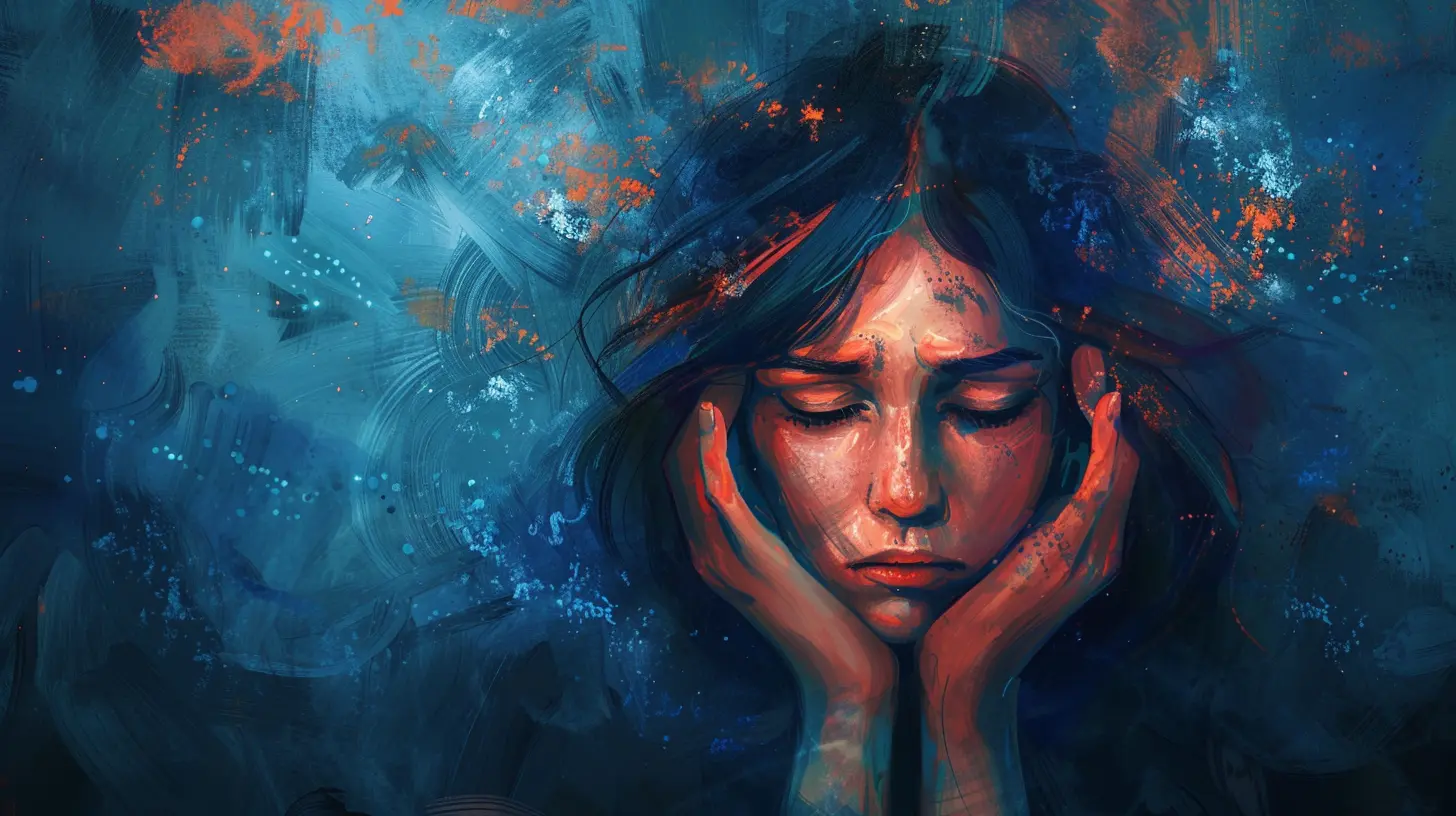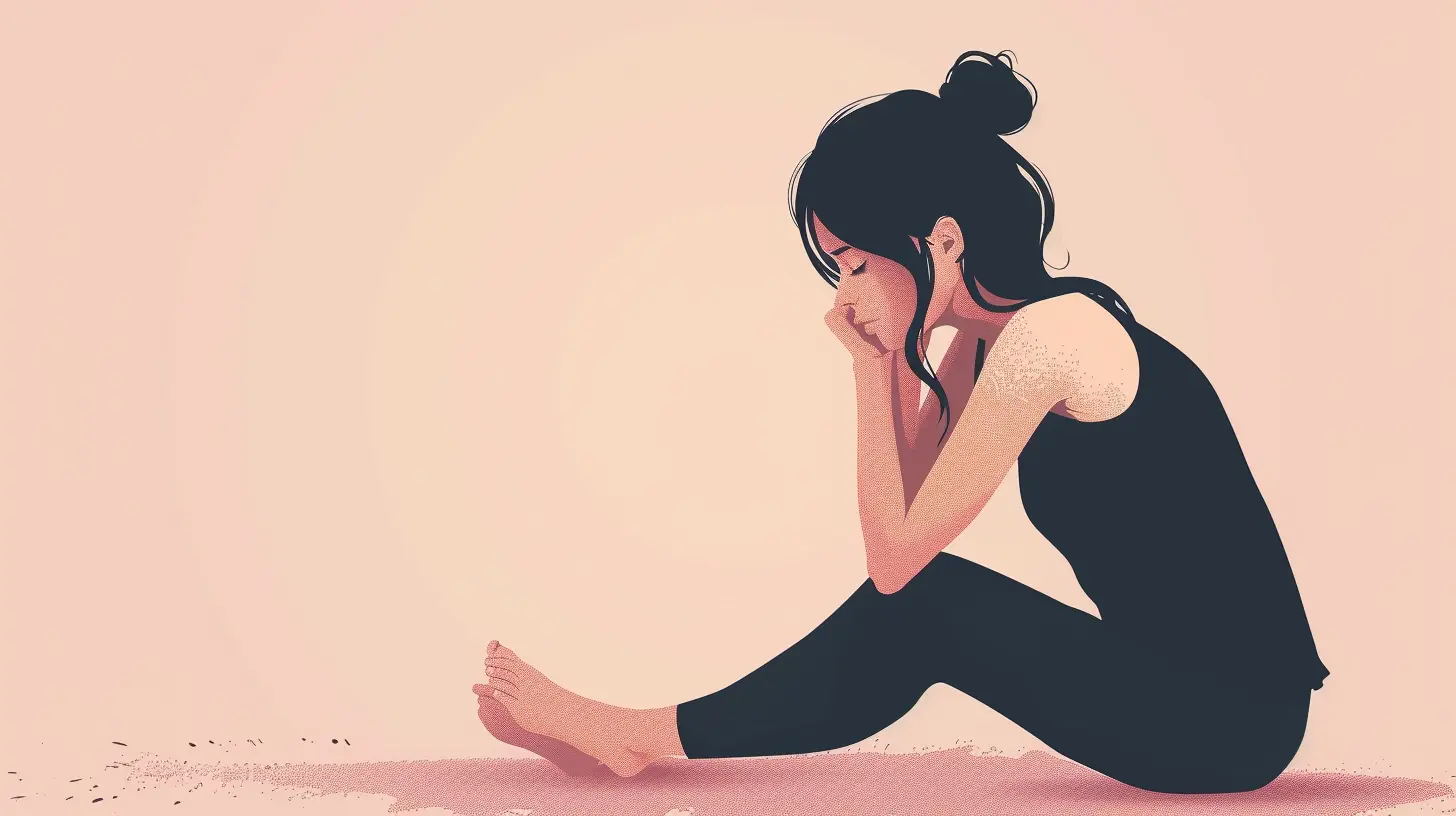Recognizing and Overcoming Postpartum Anxiety
19 July 2025
Becoming a parent is one of the most beautiful, life-changing experiences—and let’s be real, one of the most overwhelming too. You're suddenly responsible for this tiny human who depends on you for everything. Amidst all the cuddles and coos, there’s also sleepless nights, constant worry, and this nagging fear: “Am I doing this right?”
Now imagine all of that, but cranked up to eleven. That’s what it can feel like to live with postpartum anxiety. The thing is, not a lot of people are talking about it openly. We hear more about postpartum depression (which is also extremely valid and real), but postpartum anxiety often slips through the cracks. Let’s change that.
If you’ve been wondering whether what you’re feeling is more than just “new mom nerves,” you're not alone—and you're not broken. Let's break it down together.
What Exactly Is Postpartum Anxiety?
Postpartum anxiety is like the overachieving cousin of everyday worry. It’s intense, constant, and often irrational. It’s not just being concerned whether the baby is sick—it’s checking their breathing twenty times a night. It’s not just thinking about whether you’re feeding them enough—it’s obsessing over every ounce and comparing yourself to every parenting blog out there.This isn’t just stress; it’s anxiety on overdrive, and it affects about 1 in 7 moms. Yep, 1 in 7. That means you’re far from alone in this journey.
And here’s the kicker: postpartum anxiety can happen even if you don’t have any history of anxiety. It can sneak in quietly, and sometimes, it doesn’t even show up until months after childbirth.
How Is It Different From Postpartum Depression?
This is a big one because a lot of people confuse the two. While there’s definitely overlap, postpartum anxiety and postpartum depression aren’t the same thing.Postpartum depression often involves:
- Feelings of sadness or hopelessness
- Lack of interest in your baby or activities you used to enjoy
- Low energy or motivation
Postpartum anxiety, on the other hand, typically looks like:
- Constant worrying that feels uncontrollable
- Racing thoughts that won’t slow down
- Physical symptoms like a racing heart, nausea, or trouble sleeping (even when the baby is asleep)
- Obsessive behaviors like excessive checking or avoiding certain situations
Some moms experience both depression and anxiety. No matter where you fall on the spectrum, your feelings are valid. And more importantly—help is out there.
Why Does Postpartum Anxiety Happen?
Ever heard the expression “the perfect storm”? That’s kind of what’s going on here.You’ve got:
- Hormonal changes flooding your system
- Sleep deprivation that could rival Navy SEAL training
- New responsibilities and identity shifts
- Maybe even trauma from childbirth or complications
Then throw in societal pressure to appear like you’ve “got it all together,” and it’s no wonder anxiety can spike.
But here’s the thing—it's not your fault. It's not a weakness. It’s a real, biological and psychological response to major life changes.
Recognizing The Signs of Postpartum Anxiety
This part's important, because postpartum anxiety can be sneaky. Many moms dismiss it as “normal new mom worry,” but there’s a line—and when you cross it, it starts to take over your life.Here are some red flags to watch out for:
1. Excessive Worrying
Yes, every new parent worries—but anxiety takes it to a whole new level. If you're constantly imagining worst-case scenarios (like serious illnesses, accidents, or SIDS), and can’t seem to turn off those thoughts, anxiety may be at play.2. Intrusive Thoughts
These are unwanted, often disturbing thoughts that pop into your head out of nowhere. They might involve harm coming to the baby or even fears that you might accidentally (or intentionally) hurt them—even though you’d never actually do it. It’s scary, but common in postpartum anxiety.3. Physical Symptoms
Anxiety isn’t just mental. It can show up in your body, too:- Racing heart
- Shortness of breath
- Headaches
- Nausea
- Muscle tension
If your body feels like it’s in “fight or flight” mode all the time, that’s a big sign.
4. Sleep Issues (Even When You Can Sleep)
We all expect to lose sleep with a newborn, but if you lie awake worrying long after your baby’s down, or wake up in a panic for no clear reason, anxiety could be the culprit.5. Constant Need for Reassurance
Are you texting your pediatrician every day? Asking your partner if the baby is okay over and over again? Doubting every parenting decision? That need for validation might signal anxiety.How to Overcome Postpartum Anxiety
First off—deep breath. You’re not alone in this, and yes, things can get better. There’s no shame in getting support. Think of it like this: if you broke your arm, you’d see a doctor, right? Mental health deserves the same kind of attention and care.1. Talk to Someone You Trust
Start by telling a friend, your partner, or a family member what you’re going through. Even just saying the words out loud can be a huge relief. You don’t have to carry this burden alone.2. Seek Professional Help
Therapy can be a game-changer. Cognitive Behavioral Therapy (CBT), in particular, has been shown to be super effective for anxiety. A therapist can help you identify thought patterns, challenge your fears, and build coping strategies.If therapy feels intimidating, start small—maybe try a virtual session from home.
3. Consider Medication (If Needed)
Sometimes therapy alone isn’t enough, and that’s okay. Antidepressants or anti-anxiety meds can help stabilize your mood and give you the mental space to cope. Talk to your doctor about options that are safe during breastfeeding if that applies to you.4. Practice Self-Care (Yes, Even Tiny Bits!)
I know—when you have a baby, “self-care” might sound like a joke. But even five minutes to breathe deeply, sip a hot cup of tea, or take a walk can help reset your nervous system.Small steps matter. Rest isn’t a reward you earn after doing everything—it’s essential fuel for your mental health.
5. Join a Support Group
There's something powerful about being surrounded by people who get it. Whether it’s an online forum, local group, or virtual meetup, connecting with other moms who’ve been there can be incredibly healing.You’re not being dramatic. You’re being human.
What If You’re Not Sure?
Maybe you're thinking: “I don’t know if this is just normal stress or something more serious.”Here’s a simple gut-check: Is your anxiety interfering with your ability to enjoy motherhood or carry out daily tasks?
If yes, that’s your sign. Even if your symptoms don’t “check all the boxes,” you still deserve support. You don’t need to hit rock bottom to justify asking for help.
How Dads and Partners Can Help
Postpartum anxiety doesn’t just affect moms. Partners play a huge role, and they can often feel helpless watching someone they love suffer.If you’re a partner reading this:
- Listen without judgment. Don’t try to fix it—just be there.
- Offer practical support. Take the baby so she can nap. Handle meals. Encourage breaks.
- Watch for signs. Sometimes, moms hide their anxiety. If you notice obsessive behaviors, mood swings, or withdrawal, gently suggest seeking support.
- Join her journey. If she’s going to therapy, offer to attend a session. It shows that you’re in this together.
The Light at the End of the Tunnel
Postpartum anxiety can feel like a thick fog that clouds everything around you. But here’s the truth: it is possible to come out the other side.With the right support, you can feel like yourself again—maybe not the exact same person you were before, but a stronger, more resilient version of you.
Your baby doesn’t need a “perfect” mom. They just need a present one. And being present often means doing the messy, brave work of taking care of yourself too.
You are not alone.
You’re not failing.
You are enough.
And you are worthy of feeling better.
Final Thoughts
If you've been silently struggling, reading this might be your first step toward healing—and that’s amazing. Recognizing postpartum anxiety is often the hardest part, but now you’ve done that.The next step? Talk to someone, seek help, and remind yourself daily: you’re doing an incredible job.
Parenthood isn’t easy, and navigating the mental maze of postpartum anxiety can feel like walking through a storm. But storms pass. You’ve got the strength to weather it—and come out even stronger.
all images in this post were generated using AI tools
Category:
Postpartum RecoveryAuthor:

Tara Henson
Discussion
rate this article
1 comments
Zevin Chavez
Thank you for shedding light on postpartum anxiety. Your insights are so important for new parents feeling overwhelmed. Remember, seeking help is a sign of strength, and taking care of your mental health is essential for you and your baby.
July 28, 2025 at 4:11 PM

Tara Henson
Thank you for your kind words! I'm glad the article resonated with you, and I wholeheartedly agree—prioritizing mental health is crucial for both parents and their babies.


